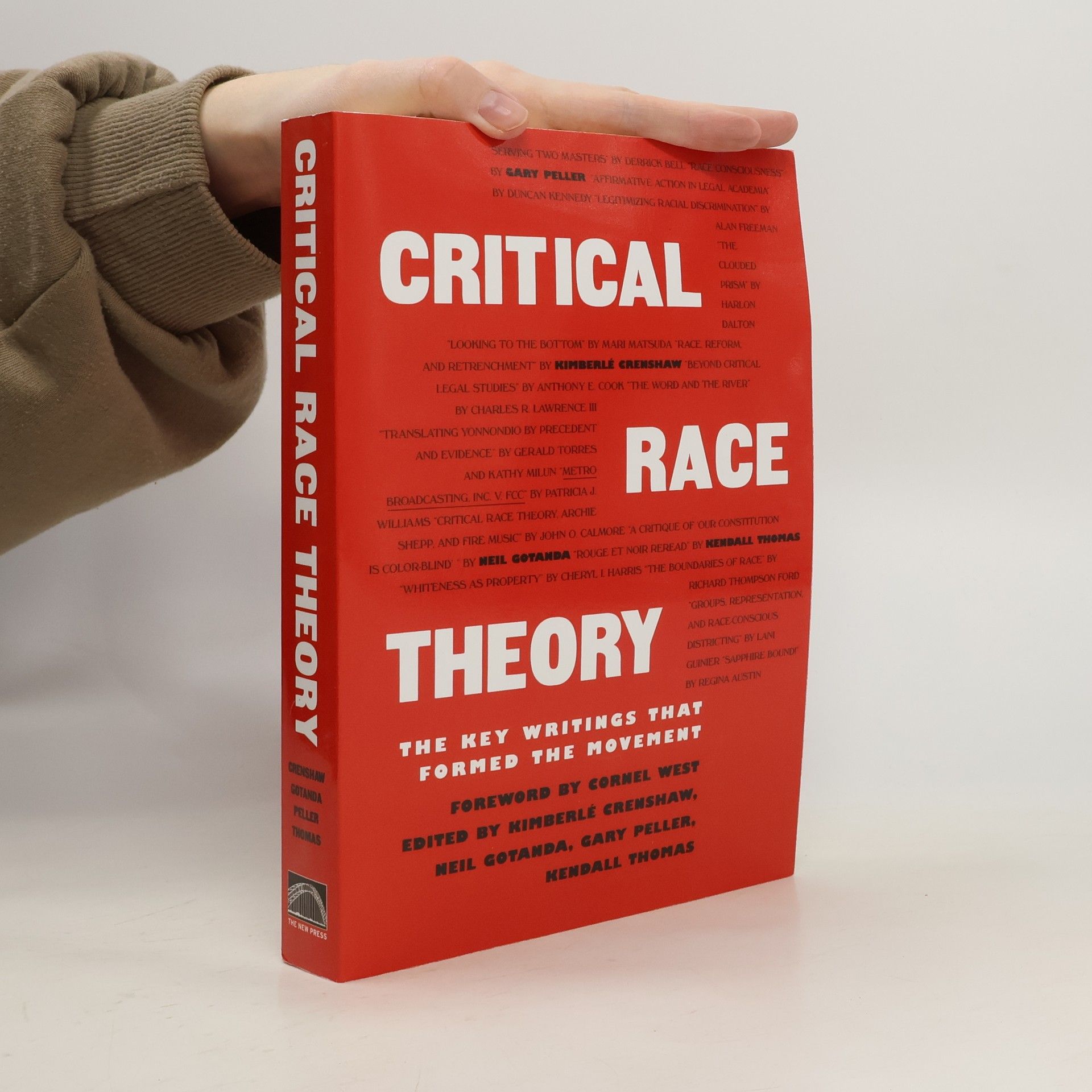#SayHerName
- 224pages
- 8 heures de lecture
An urgent call to change the story of police violence against women and girls.
Kimberlé Crenshaw est une autorité de premier plan en matière de droits civiques, de théorie juridique féministe noire et de race et de droit. Son travail explore les intersections complexes de la race et du genre, examinant comment ces catégories façonnent les expériences des individus au sein du système juridique. Crenshaw est reconnue pour son influence dans le développement de la théorie critique de la race et sa contribution à une compréhension plus approfondie du racisme systémique et de ses conséquences. Ses analyses éclairent les dynamiques de pouvoir et d'injustice dans la société contemporaine.





An urgent call to change the story of police violence against women and girls.
Over the past twenty years, the concept of "intersectionality" has emerged as an influential approach to understanding the complex facets of discrimination and exclusion in a society whose members--with often complex racial, gender, or sexual identities--can experience bias in multiple ways. In this incisive introduction to Crenshaw's groundbreaking work, readers will find the key essays and articles that have defined the concept of intersectionality collected together for the first time. Crenshaw explores how a holistic analysis of discrimination gives rise to a more nuanced understanding of salient social forces. This long-awaited volume examines the Central Park jogger case, Alice Walker's "The Color Purple," LGBT activism, Anita Hill's testimony against Clarence Thomas, and other significant matters of public interest. In each case, her analysis challenges and exposes the intricate social dynamics among individuals and groups whose identities are increasingly layered. This new account covers the evolution of the meaning of intersectionality over the course of two decades and how this concept has radically changed the face of social justice activism. "On Intersectionality" is compulsory reading from one of the most brilliant critical race theorists of our time.
A ground-breaking collection applying Crenshaw's concept of intersectionality to the black diasporic experience in Britain. In the 1980s, Professor Kimberlé Crenshaw first coined the term 'intersectionality'. Since then, the concept has spread across national and disciplinary boundaries, and has had a transformative impact on the way in which we understand identity and the experience of discrimination. But outside the US, the application of intersectional theory has largely been disconnected from any analysis of 'Blackness', despite intersectionality's origins in critical race theory (CRT). Curated by Crenshaw, Andrews and Wilson as well as several of the leading scholars of CRT, this collection bridges that gap, and is the first to apply both these concepts to contexts outside the US. Focusing on Blackness in Britain, the contributors examine how scholars and activists are employing intersectionality to foreground Black British experiences. Its essays encompass key issues such as gender and Black womanhood, issues of representation within contemporary British culture, and the position of Black Britons within institutions such as the family, education and health. The book also looks to the role intersectionality can play in shaping future political activism, and in forging links beyond 'Blackness' to other social movements.
Thirty years ago, Prof. Kimberlé Crenshaw coined the term intersectionality, profoundly influencing social justice movements worldwide. The publication “Reach Everyone on the Planet …” by the Center for Intersectional Justice (CIJ) and the Gunda Werner Institute honors her contributions to social justice and the lives of those at the intersections of multiple oppressions. This collection features texts from notable activists, critical thinkers, and academics across Germany and Europe. The contents include a welcome, introduction, and foreword, followed by a series of essays addressing various aspects of intersectionality. Kimberlé Crenshaw discusses the urgency of intersectionality, while Mîran Newroz Çelik reflects on its personal significance. Maisha-Maureen Auma explores Crenshaw’s influence on transformative justice, and Elena Chamorro examines ableism within the framework. Other contributors tackle topics such as racial capitalism, queer/trans politics, and the visibility of Black female professors in Europe. The collection also features reflections on migration, religion's intersection with race and gender, and the significance of language in social discourse. Each piece underscores the importance of intersectionality in understanding and addressing systemic inequalities, making a compelling case for its continued relevance in contemporary discussions on justice and equity.
What is Critical Race Theory and why is it under fire from the political right? This foundational essay collection, which defines key terms and includes case studies, is the essential work to understand the intellectual movement Why did the president of the United States, in the midst of a pandemic and an economic crisis, take it upon himself to attack Critical Race Theory? Perhaps Donald Trump appreciated the power of this groundbreaking intellectual movement to change the world. In recent years, Critical Race Theory has vaulted out of the academy and into courtrooms, newsrooms, and onto the streets. And no as intersectionality theorist Kimberlé Crenshaw recently told Time magazine, "It's an approach to grappling with a history of white supremacy that rejects the belief that what's in the past is in the past, and that the laws and systems that grow from that past are detached from it." The panicked denunciations from the right notwithstanding, CRT has changed the way millions of people interpret our troubled world. Edited by its principal founders and leading theoreticians, Critical Race Theory was the first book to gather the movement's most important essays. This groundbreaking book includes contributions from scholars including Derrick Bell, Kimberlé Crenshaw, Patricia Williams, Dorothy Roberts, Lani Guinier, Duncan Kennedy, and many others. It is essential reading in an age of acute racial injustice.